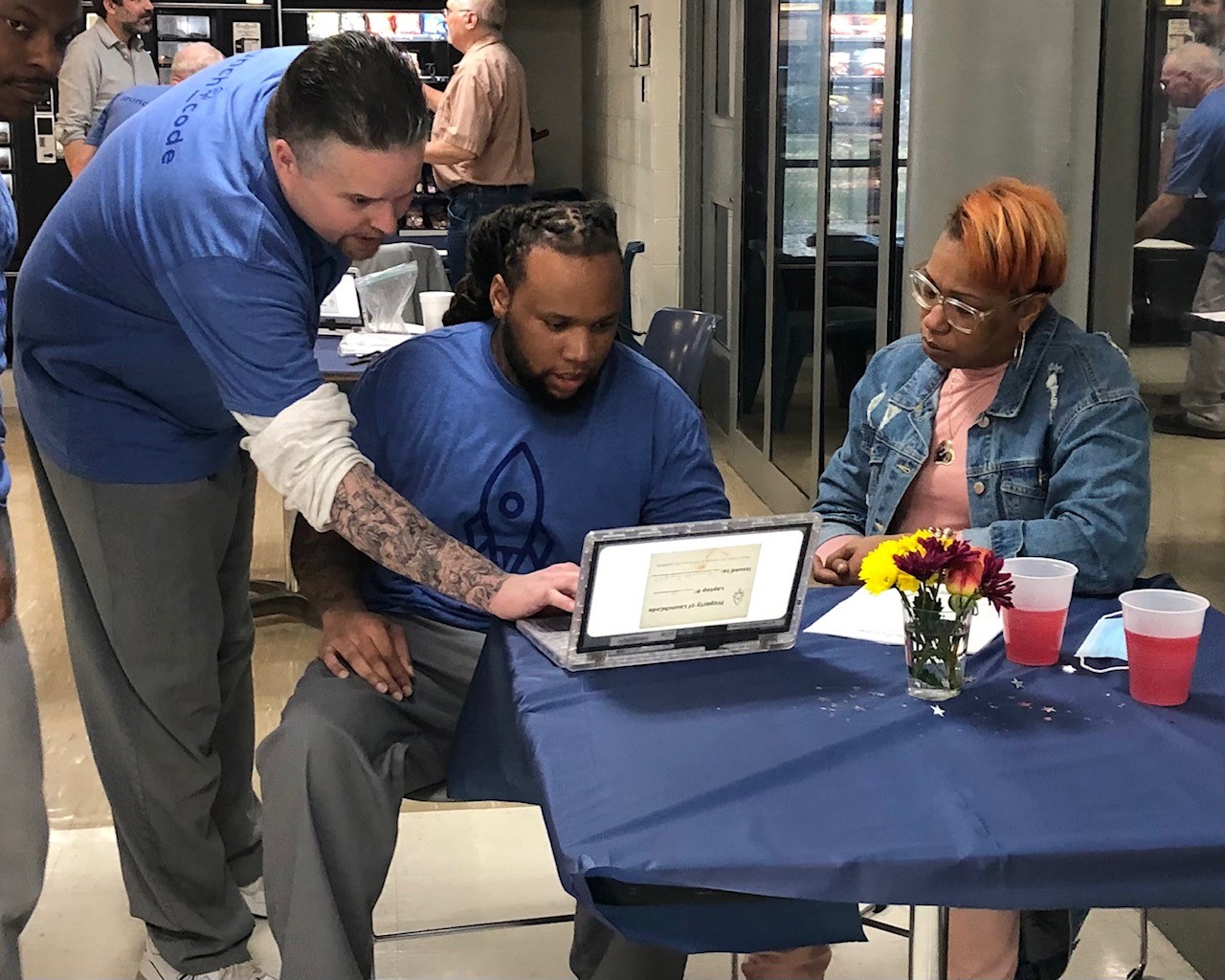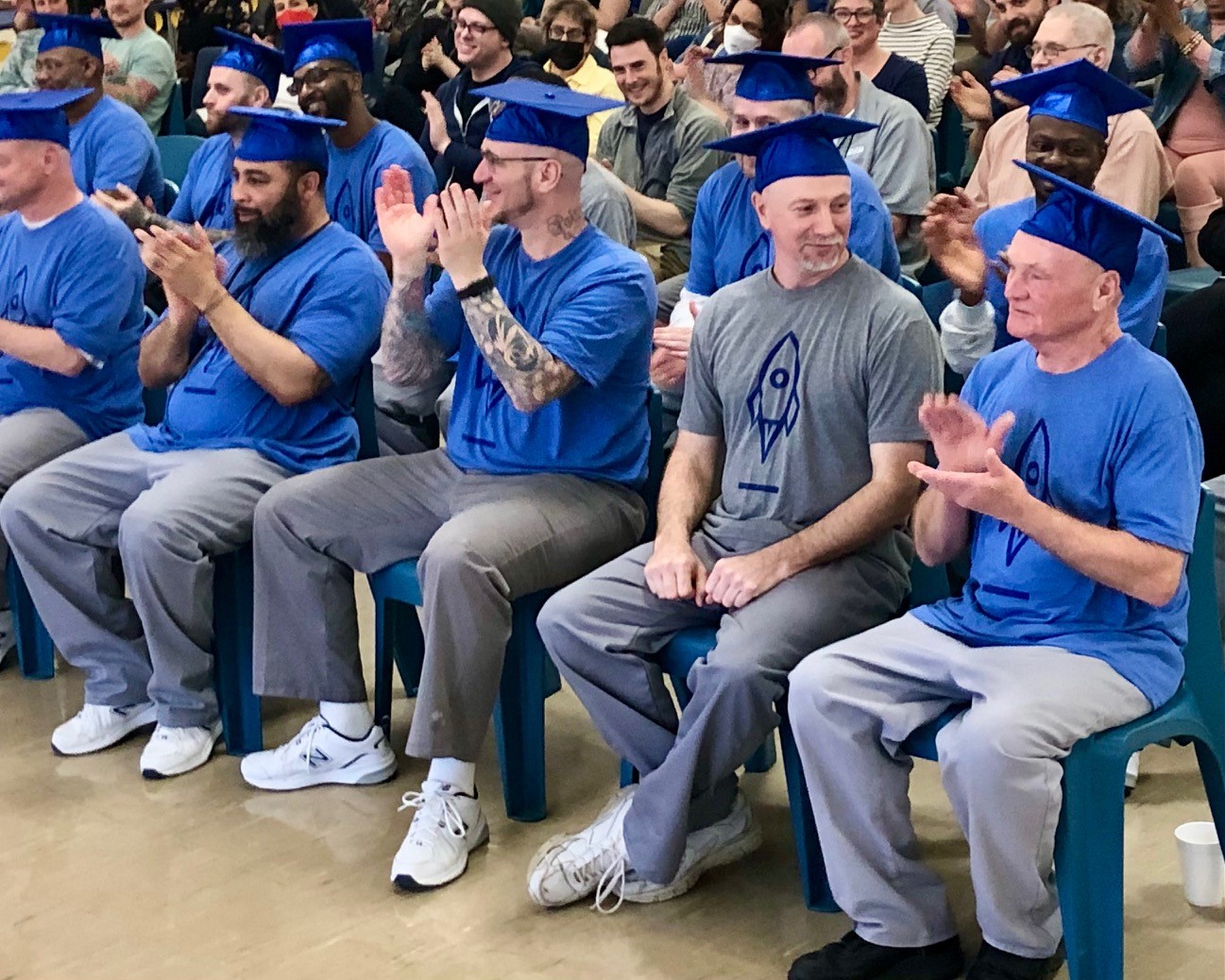The Missouri Department of Corrections has teamed up with a St. Louis nonprofit organization to offer computer programming classes to some state prisoners nearing release.
In 2018, the nonprofit, called LaunchCode, tested out the program within Potosi Correctional Center in southeast Missouri. Haley Shoaf, LaunchCode’s Vice President of Justice Programs, says after seeing success in the six-month coding boot camp of sorts, the Department of Corrections expanded the program to Missouri Eastern Correctional Center in Pacific. The first class of MECC computer programming students graduated this week.

Photos courtesy of Missouri Department of Corrections
“Research shows that recidivism rates for people returning to incarceration are very high – that many people that get out of prison eventually end up back in prison. Education and access to upwardly mobile job opportunities are two of things shown to mitigate that problem,” says Shoaf. “We connected with a group of really motivated students at the Potosi Correctional Center and some staff that wanted to see them be able to take advantage of a great opportunity and realized, as we began to pilot the program, that there was a lot of aptitude and energy for students to be successful in this program, even from inside of prison. So I think the combination of really seeing this as an opportunity that could solve a really critical problem for our community and that there was an audience of students that were really excited about the work kind of came together to create something really special.”
Shoaf says a couple of the pilot program graduates at Potosi have jobs in the tech field already and others are furthering their education. Another student from the MECC is now teaching and tutoring other students going through LaunchCode on the outside.
One of the graduates of the Potosi program, Chris Santillan, landed an IT job fresh out of prison.

Graduation Day at Missouri Eastern Correctional Center in Pacific
“I consider this my career,” he says. “And for somebody who just stepped out of prison to say, ‘Hey, I have a career and not just a job, it’s something great.’ There are right now an unlimited amount of like IT jobs available and you know, why shouldn’t more people be in my shoes and have the same kind of opportunities that I’ve been given? And because you know, the more people that have actual careers, the less people will fall back into those old habits that got them incarcerated in the first place. And I think that’s something that we all will get behind. As far as, you know, reducing the prison population reducing crime and getting more productive citizens out into society is just a win, win all around.”
Santillan, a Chesterfield native, spent 28 years behind bars for murder. He works for a St. Louis company, called Unlocked Labs, which helps incarcerated individuals.
“Without this opportunity, I would have been faced with so many more hurdles just trying to make it in this world. Employment is key for a person returning to society to not only establish finances and pay bills, but to establish a positive identity for themselves,” Santillan says.
Shoaf says second chance employees can be a great talent source for companies. She says they can have higher retention, be highly motivated and have a strong work ethic.
“Because justice involves employees often are stigmatized against itself and aren’t given a chance when they are they typically tend to be really great employees and can be awesome for companies. So I think that that’s what we’re trying to help employers understand and engage with is that there’s a really it’s truly an overlooked source of talent,” she says.
The Department of Corrections plans to expand the program even more – to Algoa Correctional Center in Jefferson City later this spring.
Copyright © 2022 · Missourinet

